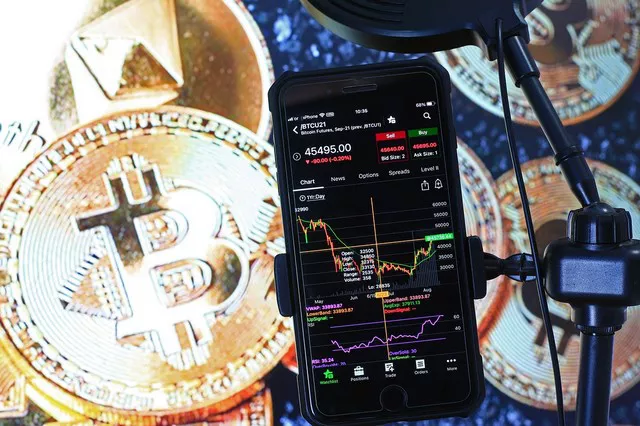The intricate interplay between futures and stock prices is a fundamental aspect of the modern financial landscape. As derivative contracts that speculate on the future value of underlying assets, futures play a significant role in shaping market sentiment, driving price discovery, and influencing trading activities.
1. Price Discovery and Market Sentiment
Futures contracts are valuable instruments for price discovery, providing insights into the market’s collective expectations and sentiment about the future direction of stock prices. The movement of futures prices is often indicative of investor beliefs regarding the future value of the underlying stocks or indices.
When futures prices rise, it suggests optimism and a bullish outlook for the corresponding stocks or indices. Conversely, a decline in futures prices signals a more bearish sentiment. These price movements can influence market participants’ perceptions of potential price trends, prompting adjustments in investment strategies and trading decisions.
2. Arbitrage Opportunities and Fair Value
Futures contracts contribute to maintaining equilibrium between cash markets (stock markets) and derivative markets (futures markets). Traders can exploit pricing discrepancies between futures and underlying stocks through arbitrage strategies, ensuring that prices remain closely aligned.
Arbitrage involves simultaneously buying and selling related instruments to capture price differentials. If futures prices diverge significantly from the fair value of the underlying stocks, arbitrageurs enter the market to restore equilibrium. This process helps prevent prolonged price disparities and ensures that futures and stock prices remain closely connected.
3. Hedging and Risk Management
Futures play a pivotal role in hedging strategies, enabling market participants to mitigate potential losses resulting from adverse price movements. Hedgers use futures contracts to offset risk exposure in their stock portfolios. For instance, a portfolio manager anticipating a market downturn may take short positions in futures contracts to protect the value of their stock holdings.
By effectively managing risk through hedging, market participants can navigate uncertain market conditions with greater confidence. The use of futures contracts to hedge against unfavorable price movements can influence stock prices by stabilizing market sentiment and reducing the impact of large-scale sell-offs.
4. Speculative Trading and Liquidity
Futures markets attract a diverse range of participants, including speculators seeking to profit from price fluctuations. Speculative trading in futures can influence stock prices by amplifying short-term volatility. Rapid buying or selling of futures contracts can trigger corresponding movements in stock prices as speculators act on their expectations of market direction.
Moreover, the liquidity provided by futures markets can impact stock prices. Increased trading activity in futures can spill over into the stock market, leading to heightened trading volumes and potentially influencing price movements.
5. Impact of Macro-Economic Events
Futures are sensitive to macroeconomic events such as interest rate changes, economic data releases, and geopolitical developments. These events can have ripple effects on stock prices through their influence on futures markets.
For example, an unexpected interest rate cut by a central bank can lead to lower borrowing costs, potentially boosting economic activity. This positive sentiment may be reflected in rising futures prices, which can, in turn, translate into upward pressure on stock prices.
6. Market Sentiment Contagion
Futures markets can serve as conduits for the transmission of market sentiment across asset classes. Significant price movements in futures markets can influence investor sentiment, affecting stock markets and other related financial instruments.
If futures markets experience sharp declines due to adverse news or economic indicators, this negative sentiment can spill over into the stock market, potentially leading to widespread selling pressure. Similarly, a strong bullish sentiment in futures markets can contribute to a more optimistic outlook in stock markets.
7. Trading Strategies and Price Momentum
Traders often use futures prices and market trends to inform their trading strategies. Positive momentum in futures markets can lead to increased buying activity in the corresponding stocks, driving up stock prices.
For example, if a major stock index futures contract experiences a sustained uptrend, traders may interpret this as a bullish signal for the overall stock market. As a result, they may enter long positions in stocks to capitalize on the anticipated upward movement.
8. Regulatory Impact and Market Efficiency
Regulatory changes and interventions in futures markets can have repercussions for stock prices. Regulatory measures aimed at improving market transparency, reducing excessive speculation, or addressing systemic risks can influence trading behavior in futures markets, thereby impacting stock prices.
Furthermore, the efficient functioning of futures markets contributes to overall market efficiency. Accurate and timely price information in futures markets allows investors to make more informed decisions, which, in turn, can influence trading activities and price movements in the stock market.
9. Psychological Effects and Investor Behavior
The psychological impact of futures on investor behavior should not be underestimated. The visibility and accessibility of futures markets can amplify market sentiment, shaping investor perceptions and actions.
For instance, a sudden and significant drop in futures prices can trigger fear and panic among investors, leading to widespread selling in the stock market. Conversely, a strong rally in futures markets can foster a sense of confidence and encourage investors to participate in stock market gains.
Conclusion
The intricate relationship between futures and stock prices underscores the interconnectedness of financial markets. Futures contracts serve as powerful tools that contribute to price discovery, risk management, and trading strategies in the stock market. Their influence on stock prices is multifaceted, ranging from providing insights into market sentiment and fair value to impacting trading behavior and liquidity.
As investors and market participants navigate the complexities of the financial landscape, an understanding of how futures affect stock prices is essential. By recognizing the mechanisms through which futures exert influence, individuals can make more informed investment decisions, manage risk effectively, and contribute to the dynamics of a robust and responsive market ecosystem.



